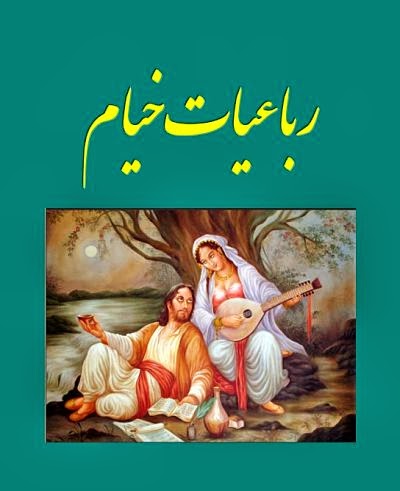The eminent 11th century Persian Sufi poet & philosopher, Omar Khayam
Ah, make the most of what we yet may spend,
Before we too into the dust descend;
Dust into dust, and under dust, to lie,
Sans wine, sans song, sans singer, and—sans end!
Before we too into the dust descend;
Dust into dust, and under dust, to lie,
Sans wine, sans song, sans singer, and—sans end!
Omar Khayam
The Sufistic Quatrains of Omar Khayyam
Including the translations of Edward Fitzgerald (101 quatrains) with Edward Heron-Allen's analysis, E. H. Whinfield (500 quatrains), J. B. Nicholas (464 quatrains).With prefaces by each translator and a general introduction dealing with Omar's place in Sufism by Robert Arnot.
GENERAL INTRODUCTION
The earliest reference to Omar Khayyam dates from the middle of the seventh century of the Hijra. Mohammad Shahrazuri, author of a little-used history of learned men, bearing the title of Nazhet-ul-Arwah, devotes to Khayyam the following passage:
Omar Al-Khayyami was a Nishapuri by birth and extraction. He [may be regarded as] the successor of Abu 'AH (Avicenna) in the various branches of philosophic learning; but he was a man of reserved character and disliked entertaining (sayyik al- atari). While he was in Ispahan he perused a certain book seven times and then he knew it by heart. On his return to Nishapur he dictated it [from memory] and on comparing it with the original copy, it was found that the difference between them was but slight. He was averse both to composition and to teaching. He is the author of a handbook on natural science, and of two pamphlets, one entitled Al-Wujud(or Real Existence) and the other Al-Kawn W'al Taklif. He was learned in the law, in classical Arabic, and in history.

گزيده اي از رباعيات حكيم عمر خيام
گويند بهشت و حور عين خواهد بود
آنجا مي ناب و انگبين خواهد بود
گر ما مي و معشوق پرستيم رواست
چون عاقبت كار همين خواهد بود
گويند بهشت و حور عين خواهد بود
آنجا مي ناب و انگبين خواهد بود
گر ما مي و معشوق پرستيم رواست
چون عاقبت كار همين خواهد بود
چندين غم مال و حسرت دنيا چيست؟
هرگز ديدي كسي كه جاويد بزيست؟
اين چند نفس در تن تو عاريتي ست
با عاريتي عاريتي بايد زيست
در عشق تو از ملالتم ننگي نيست
با بيخبران در اين سخن جنگي نيست
اين شربت عشق داروي مرادنست
نامردانرا از اين قدح رنگي نيست
مي خوردن و گرد نيكوان گرديدن
بهتر كه به رزق زاهدي ورزيدن
گر دوزخي اند مردم مست، بگوي
پس، روي بهشت را كه خواهد ديدن؟



























































0 comments:
Post a Comment